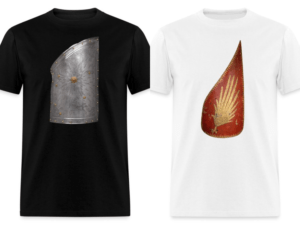1662: the adventure of 12 Hajdú warriors

Where is Hollywood? Where are you, Hungarian movie-makers? Here is a deed worth turning into a film…
Let me share with you the excellent article of Szerecz Miklós because he is writing about something very important: the heroism of unknown soldiers who were perhaps more important than all the great captains and generals who fought against the foe.
Read the story of the heroic 12 Hajdú soldiers of Zrínyi Miklós (Nikola Zrinski) who went on an adventure to the Ottoman Occupied Lands near Pécs castle, 1662…(Please, note that I use the Oriental name order for Hungarians where family names come first.)

According to Szerecz, Zrínyi Miklós felt important to write about this deed with his own hands: „Verily, many generations have not seen such virtue and I have no doubt that it can be compared to any heroic deeds of the ancient Romans. This was why I wanted to write to your Lordship with my own hands about this so your Lordship could tell it to your own friends. I wish this great glory encouraged them to follow this example! Indeed, I myself find these soldiers worthy to get into the chronicle of this century.”

The story took place 360 years ago, at the end of the summer of 1662 or at the beginning of the autumn when a handful of warriors of Zrínyi made a daring adventure as far as Pécs Castle whereas they were noticed by the Turks and got engaged in a bloody fight with them. Here is more about the history of Pécs castle:

It was not always the Ottomans who broke the Truce, the Hungarian Borderland warriors have also found excuses to make trouble. I would say it was mainly because of the lack of money: the Hungarian warriors were underpaid and many times starving. They could not have sustained their living without raids against the enemy. Unfortunately, the unpaid soldiers many times were looting Hungarian villages in the Ottoman Occupied Lands. For example, the Hungarian settlements around Pécs city were “Turkish” and the countryside around it was called “Turkey”. In fact, one could find very few native Turks even in Pécs. According to the contemporary Ottoman payrolls, 95% of the mercenaries in their garrisons in Hungary were of South Slavic or Albanian origin.
We can learn about a similar raid from the letter of the Hungarian-Croatian Bán (Duke) Zrínyi sent to Vitnyédy István, written in Latin, around the end of 1662`s summer. Zrínyi wrote that 12 of his soldiers had set out to a raid towards Pécs but the Turks surprised and outnumbered them:
„Twelve infantrymen of mine had gone for a raid from my new stronghold (Új Zrínyivár Castle) and they went to the Turkish lands towards Pécs to get some booty from the Turks but to their bad luck, a Turk noticed them accidentally, and behold, not just the Turkish soldiers of Pécs Castle came out against them but all their folks from around, surrounding them. Even the Pasha came out with his entourage who was staying at Kanizsa at that time. When our soldiers saw this, although they had no hope to save themselves, encouraged each other and they made an oath that they would defend each other until their last breath.”

“At first, the Turk riders rushed at them at random because they despised their low numbers, but immediately they got punished for this because some of them were killed by rifle fire. Then, their weapons and gunpowder were taken away from the fallen and in this way, the defenders could make a long fight. The battle became a long-running fight that lasted from the morning until evening, and even longer. Forty Turks fell dead on the spot and sixty got lethal injuries and more than a hundred horses perished. Three of the most high-ranked men of the Pasha died as well as four local Aghas, along with many lower-ranked officers, and the Pasha himself could barely get out from the peril.”

“But their virtue has not saved the life of our Christians. When their rifles became overheated due to the immense shooting, they cast them away and drew their swords, rushing against the foe where they were the thickest. Finally, after giving and receiving countless severe wounds, eleven of them fell next to each other. The twelfth of them got somehow separated from them in the meléé and although heavily wounded, he got through the lines of the enemy and was hiding in the thicket all night long, half-dead. Christian peasants found him in the morning and they took him away alive, and we have good hope for his survival.
Verily, many generations have not seen such virtue and I do not doubt that it can be compared to any heroic deeds of the ancient Romans. This was why I wanted to write to your Lordship with my own hands about this so your Lordship could tell it to your own friends. I wish this great glory encouraged them to follow this example! Indeed, I myself find these soldiers worthy to get into the chronicle of this century.”
(Source: Szerecz Miklós: Vitézség tükrei. Zrínyitől Rákócziig. – kézirat / manuscript)

You can read more about Hajdú soldiers here:
https://www.hungarianottomanwars.com/essays/the-hungarian-hajdu-warriors/
For the sake of my Hungarian readers, here is the full text of Zrínyi Miklós’ letter (source: Szerecz Miklós):
1662
A “tizenkettő” Pécs alatt…
Zrínyi Miklós tudósítja hű “nemesei szolgáját”, Vitnyédy Istvánt latin nyelvű 1662 késő nyarán vagy kora őszén írt levelében, mikor is, arról szólt, hogy tizenkét katonája Pécs alá indult portyára, ahol azonban a törökök túlereje meglepte őket:
„Az új erősségből tizenkét gyalogosom kicsapott török területre egészen Pécsig, hogy valami zsákmányt szerezhessenek a törököktől, de balszerencséjükre véletlenül észrevette őket egy török, és lám, nem csupán a pécsi török katonák vonultak ki rögtön, hanem az egész nép is, és körülfogták őket; többen lehettek ezer fegyveres embernél. Sőt, maga a basa, aki Kanizsán volt, és most is ott tartózkodik, ellenük jött egész kíséretével. Mikor a mi katonáink látták ezt, bár a maguk megóvására semmi reményük sem volt, mégis fellelkesítették egymást, és maguk között kölcsönösen megesküdtek rá, hogy utolsó leheletükig védekeznek. A török lovasok pedig először vaktában rohantak rájuk, mert megvetették oly csekély számukat, ám rögtön meg is bűnhődtek érte, mert néhányukat puskával megölték, és elvették tőlük fegyvereiket és puskaporukat, amelyek birtokában már hosszú harcra nyílt módjuk.
A csata el is húzódott reggeltől délig, sőt még tovább. Ebben negyven török ott helyben elesett, mintegy hatvan halálosan megsebesült és több mint száz ló pusztult el. A basának főbb emberei közül a három legelőkelőbb török, és annak a helynek négy agája veszett el néhány más kisebb rangú tiszttel együtt, maga a basa is alig menekült meg a végveszedelemből. De a mi keresztényeinket sem mentette meg nagy virtusuk. Miután a hatalmas lövöldözéstől áttüzesedett puskáknak a szerfölötti meleg miatt már nem vehették hasznát, elhajították őket, és kardot rántva rárohantak a legsűrűbb ellenségre, s végül számtalan súlyos sebet adva és kapva, tizenegyen közülük elestek közvetlenül egymás mellett. A tizenkettedik pedig közülük a harcban valahogy elszakadt tőlük, és súlyos sebekkel átjutva az ellenség sorain, egész éjjel félholtan lapult valami bozótban. Reggel keresztény parasztok bukkantak rá, élve hozzánk hozták, és élete felől jó reménységben vagyunk.
Bizony sok nemzedék nem látott ilyen virtust, s nem kételkedem benne, hogy a római hősök bármelyikével össze lehet hasonlítani őket. Azért magam akartam írni róluk Kegyelmednek, hogy maga is tudtára adhassa magyar barátainak. Bárcsak követésre lelkesítené őket ily nagy dicsőség! Én bizony méltóknak ítélem őket arra, hogy bekerüljenek e század históriáiba és krónikáiba.”
Dear Readers, I can only make this content available through small donations or by selling my books or T-shirts.
If you like my writings, please feel free to support me with a coffee here:
You can check out my books on Amazon or Draft2Digital, they are available in hardcover, paperback, or ebook:
https://www.amazon.com/dp/198020490X
or at https://books2read.com/b/boYd81


My work can also be followed and supported on Patreon: Become a Patron!http://Become a Patron!


https://hungarianottomanwars.myspreadshop.com/

https://hungarianottomanwars.myspreadshop.com/all



